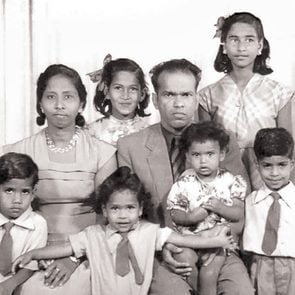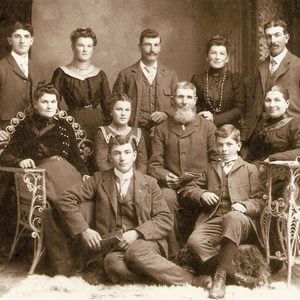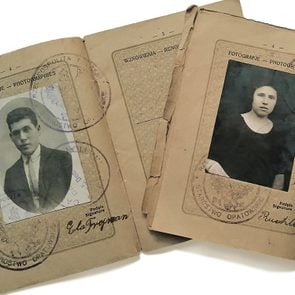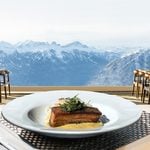A Powerful Act of Kindness Meant the World to This Postwar Immigrant Family
My family's experience as postwar refugees in Germany had been difficult; arriving in Canada was a different story.
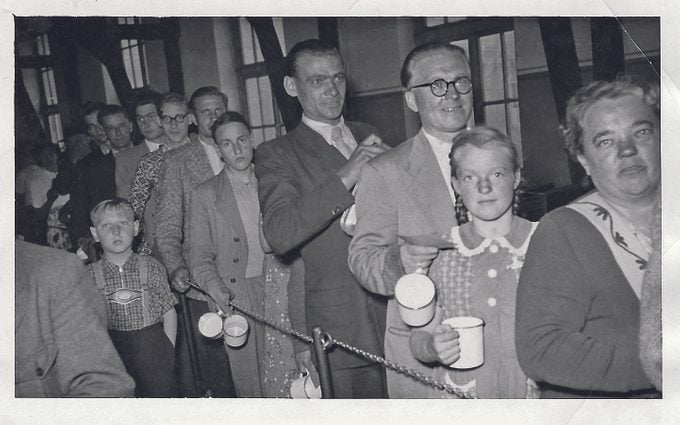
In May 1953, my mother Nadieczda, my father Wilhelm and I emigrated from Bremerhaven, Germany, on the Fairsea. Sailing up the St. Lawrence River, we landed in Quebec City. We then spent five days on trains before arriving in Cranbrook, B.C. I was almost 13 years old.
We were taken to a small cabin on the outskirts of town by our sponsors, Otto and Selma Tomms. It was one of 12 homes known as the “Green and White Cabins.” Some were occupied on a permanent basis while others housed travellers.
Our cabin consisted of one room with a cold water sink. At the back of the property was an outhouse. The cabin was simple, yet it met all our needs at that moment in time.
Someone picked my father up every morning at 6 a.m. in a “crummy,” a converted truck used to transport loggers to and from work, and took him
to work at a sawmill in Perry Creek near Wycliffe, owned by a Mr. Billmark. Piling lumber was physically demanding work for a man who previously had spent his life working in an office. The heat was at times unbearable. My father would take a towel to work and during his short breaks, he would thoroughly wet it, placing it on his head, under a cap. The workers did not wear hard hats in those days. Father told us about this as a statement of fact, but he never complained.
My mother would get up early and walk to work at “Uncle Tomm’s Cabins.” I was allowed to sleep in and when I got up, I’d walk to where my mother worked and help her with the cleaning of those cabins.
I loved walking through the dry, high grass and having grasshoppers jump all around me. I looked forward each day to that walk. The summer seemed to go on forever, one warm, drowsy day following another.
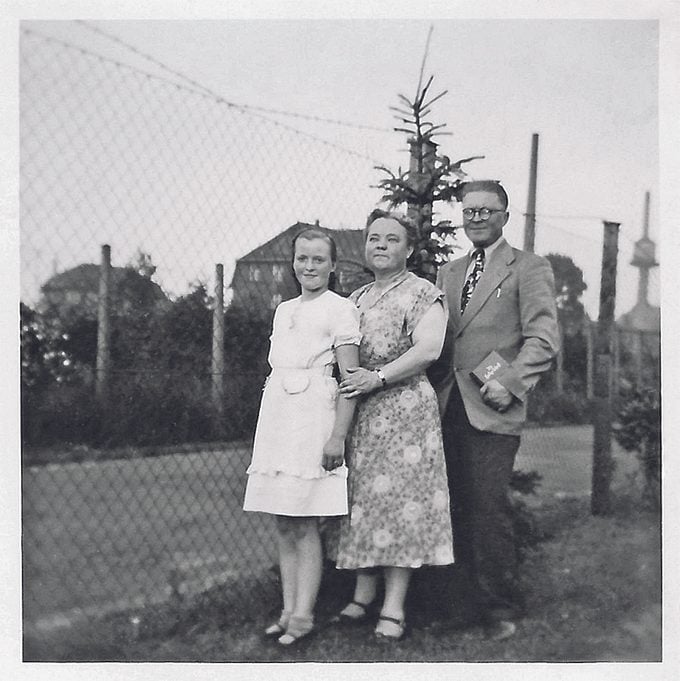
A frightening episode
At one point, we saw smoke filling the sky over the surrounding hills and were told that there were fierce forest fires raging all around us. There was one very frightening episode during that period. One day, my father did not return from work at his usual time. There was no word from him and my mother was unable to sleep. She sat at our table becoming more anxious as the hours ticked by.
As dawn was breaking, we heard a vehicle stop in front of our door and a man’s voice called out to my mother in broken German, “Dei Mann is beim Feier,” which meant, “Your man is at the fire.” Then without explanation, he drove away.
My mother became hysterical, weeping and wailing that her husband, having survived the war, might now lose his life in a Canadian forest. We had no idea how safe or dangerous this work was. She asked a German-speaking friend, who told her that these forest fires occur frequently and almost everyone returns safely. She also told her that every precaution would be taken to keep the men safe as they dug ditches to prevent the fires from spreading too far. My mother realized she had reacted hastily and without checking the facts.
Four weeks later, my father returned, unbelievably dirty, yet unscathed. He told stories about the abundance of food and long hours of light work, but always at a great distance from the actual fires. My mother just clung to him, not wanting to let him go.
We soon learned that Cranbrook winters are severely cold and we knew we could not stay in this small summer home.
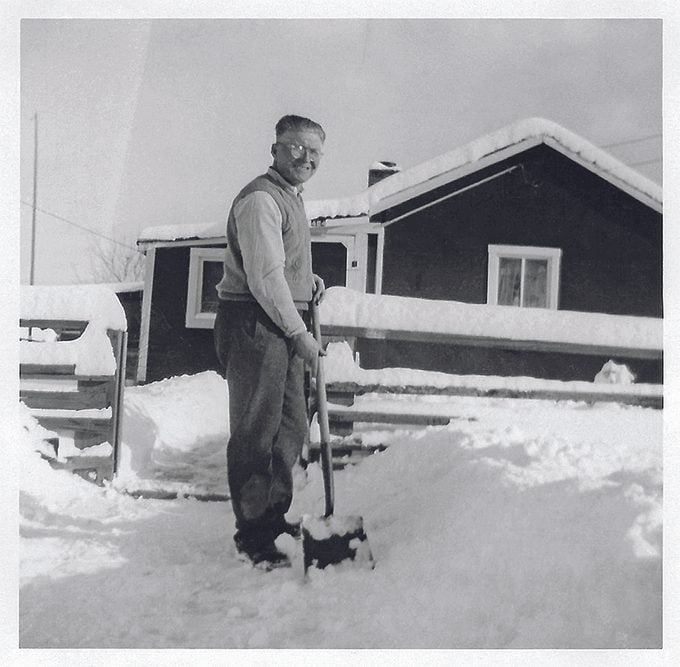
“Such kindness was simply overwhelming to us”
Otto and Selma found a small house on Fourth Ave. for us to rent. It was a lovely little home. There were two bedrooms, a real bathroom, a living room and a kitchen with a wood stove. This stove would provide us with heat and a place to cook our meals. Attached to the stove was a large water tank, the coils circulating the water through the stove, providing us with hot water for as long as the stove was kept burning.
We moved into this cozy place in August 1953. The day we moved in, my mother placed our feather beds and blankets on the floor of each bedroom as we then had no furniture.
Mrs. Turner, who owned the home, came over that afternoon to see how we were doing. By the way, none of us spoke any English at this time. She communicated with us partially through sign language, asking us where our furniture was. We indicated that we had none, but would buy some as soon as my father received his next pay envelope. This kind lady just shook her head and left.
Two hours later, she reappeared, this time with her two grown sons and a truckload of furniture. We stood in awe as these young men unloaded the truck, bringing in a couch, an overstuffed chair, a table with chairs and two beds, one for each bedroom. Then they brought in the crowning glory, a wonderful antique Victrola in perfect working order with a large stack of records. Such kindness was simply overwhelming to us. We had not experienced such caring for many years. My mother just wept with gratitude.
Mrs. Turner indicated to us that as we bought our own things, we were to return each item to her. In time, we discovered that Mrs. Turner was a Christian and believed the Lord would want her to help us. Our gratitude to the Lord and this kind lady knew no bounds.
The war years and the postwar era had been so harsh on us. As people of German origin living in Poland, our family fled the invading Russian army with thousands of other Volksdeutsche in early 1945. Arriving in Germany as refugees, we were resented by the locals who were forced to share their meager resources with us. After eight years of never feeling welcome, the caring attitude we were met with here in Canada overwhelmed us. I am certain that our refugee experiences and our reception here has made us more caring people.
Next, read the incredible story of how one Dutch family survived WWII to start anew in Canada.
